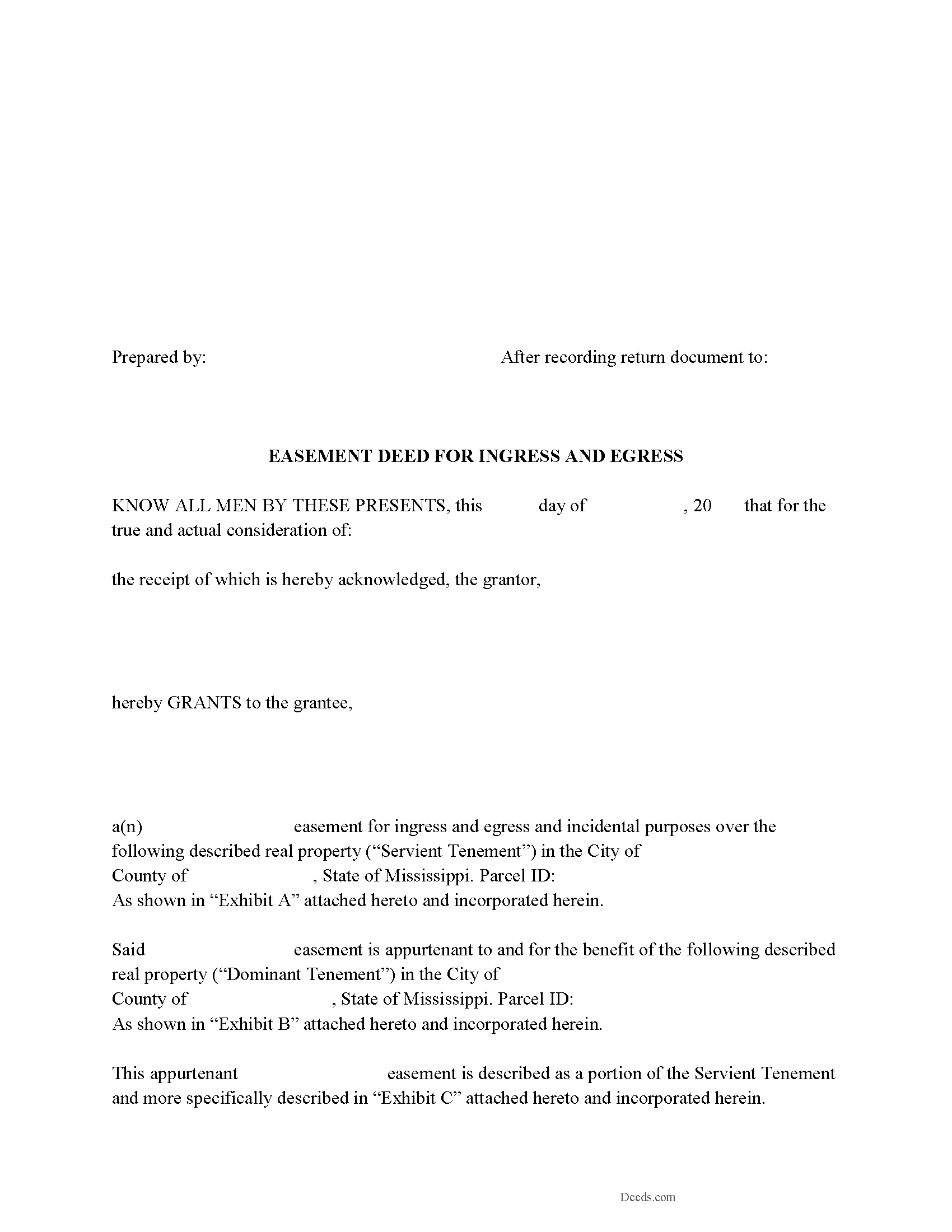Download Mississippi Easement Deed Legal Forms

Mississippi Easement Deed Overview

An easement is a real property interest, but does not include rights of ownership. Easements allow one party to use the land of another for a specific purpose. This agreement is created by an easement deed, which can be made to benefit a dominant estate or an individual or legal entity, and can also be affirmative or negative. An easement in Mississippi will run with the land.
A conservation easement can be created, conveyed, recorded, and assigned in the same manner as other easements in the state. Except as may be provided by statute, a conservation easement is unlimited in its duration unless the instrument creating it provides otherwise ( 89-19-5). No right or duty in favor of or against a holder and no right of a person having a third-party right of enforcement arises under a conservation easement before its acceptance by the holder and a recordation of the acceptance ( 89-19-5).
An easement deed should be declared in writing, signed by the grantor, and delivered ( 89-1-3). Easement deeds should be acknowledged or proved, and the acknowledgment or proof should be certified by any of the authorized officers listed in section 89-3-3 of the Mississippi Revised Code. Acknowledgements or proof can be made in another state if the party executing the deed resides out of state. The acknowledgment or proof should be taken before any of the officers listed in 89-3-9, and the easement deed will be as good and effective as if the certificate of acknowledgment or proof had been made in Mississippi ( 89-3-9). If an easement deed does not have a proper acknowledgment or proof, the recording clerk may refuse to admit it to record. If a deed is not acknowledged or proved according to law, but has otherwise been admitted to record, then all persons are considered to be on constructive notice of the instrument ( 89-3-1).
In order to provide notice to third parties, an easement deed in Mississippi must be recorded with the chancery court in the county where the property is located. An easement deed will take effect as to all creditors and subsequent purchasers for a valuable consideration without notice only from the time it is delivered to the clerk to be recorded ( 89-5-5). If an easement deed is not recorded, it will be valid and binding only between the parties and their heirs, and as to all subsequent purchasers with notice or without valuable consideration ( 89-5-3).
(Mississippi ED Package includes form, guidelines, and completed example)